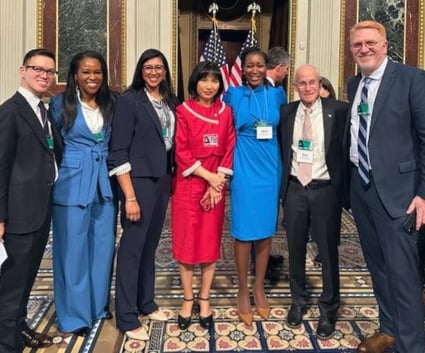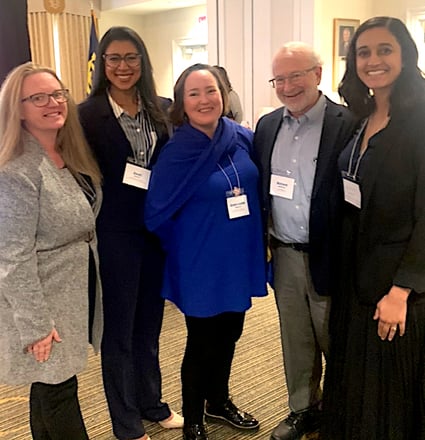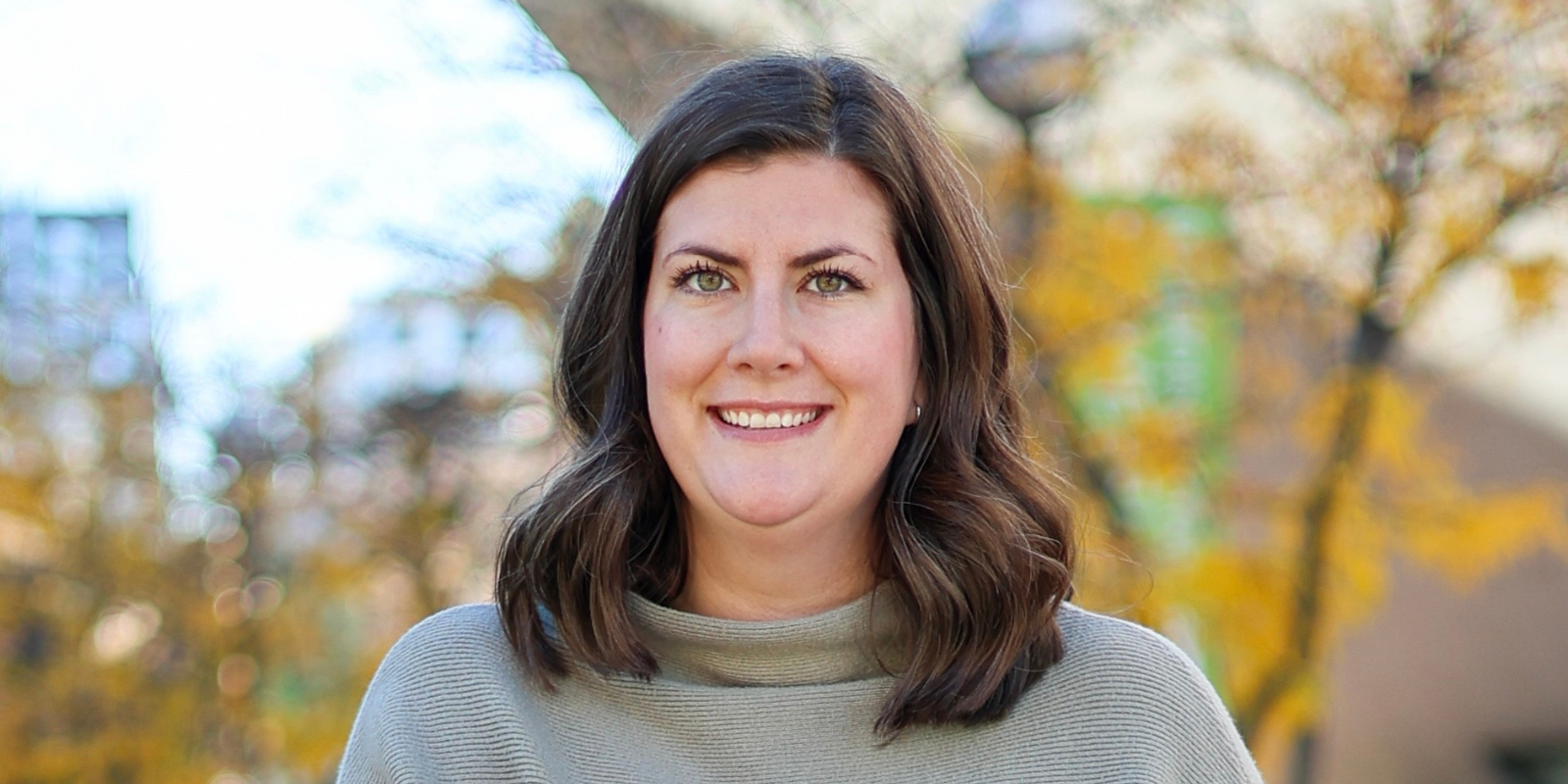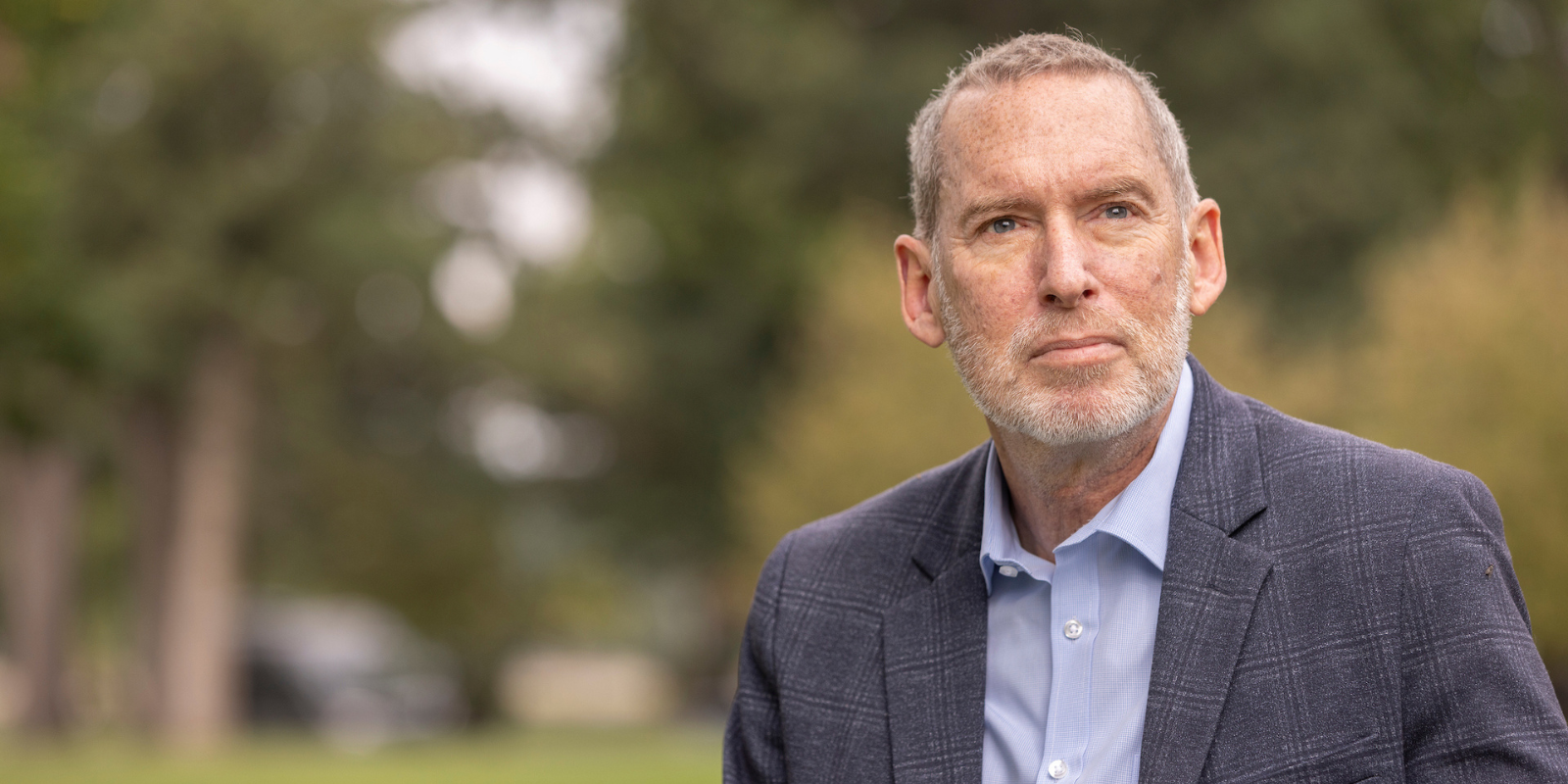Earlier this month, medical professionals, patient advocates, industry innovators, federal policymakers, and public health officials, including two members of the University of Colorado Cancer Center, gathered at the White House for the Cancer Moonshot Colorectal Cancer Forum.
Held in recognition of Colorectal Cancer Awareness Month in March, the event was part of President Joe Biden’s Cancer Moonshot initiative that aims to cut the death rate from cancer by 50% over the next 25 years and to improve the lives of people who are living with cancer.
Andrea “Andi” Dwyer, director of the CU Cancer Center’s Colorado Cancer Screening Program, and Swati Patel, MD, associate professor of gastroenterology in the CU School of Medicine, traveled to Washington to hear updates on several key Moonshot initiatives and to learn about innovations happening around colorectal screening, prevention, and treatment.
“It was awesome to see so many thought leaders from industry, people who are working in AI, people who are working in clinical research, gather to discuss the current state of colorectal cancer care and prevention, as well as the gaps,” says Dwyer, Senior Professional Research Assistant at the Colorado School of Public Health. “It was an amalgamation of so many different types of folks, and it was great to see all of them coming together.”
Helping underserved populations
Among the themes explored at the conference was improving access to care for medically underserved populations, including African Americans and Alaska Natives. Because members of these and other groups don’t have as much access to screening, they often present with colorectal cancer in later stages that are more difficult to treat.
 Patel with other gastroenterologists at the Moonshot forum.
Patel with other gastroenterologists at the Moonshot forum.
“The Biden administration has a really refreshing focus on these issues,” Patel says. “They weren’t interested in a soundbite or a publicity event, but they really are focusing on the opportunities for reaching all Americans, which I think is really wonderful.”
Prior to the Moonshot event, Patel and Dwyer attended a luncheon hosted by the patient advocacy organization Fight Colorectal Cancer, which for years has advocated for patients in effecting policy change at the local, regional, and national levels.
“That was a really productive meeting, and the inception of what will likely be an important meeting of the minds,” Patel says. “We have committed to working with Fight Colorectal Cancer to write a white paper that will not just describe where we are and where there are gaps, but unique and creative ways to address those gaps.”
Data and tech join the fight
Creativity in addressing care gaps was the order of the day at the March 10 Moonshot event, which in addition to policymakers, medical professionals, and public health officials, included presentations by entrepreneurs and technology company representatives at the forefront of using data and technology to address colorectal cancer prevention and care.
“These were different conversations than we’ve had in the past, because those players have never really been around the table together,” says Dwyer, who also is a senior professional research assistant in community and behavioral health and an instructor in the Rocky Mountain Public Health Training Center for the Colorado School of Public Health on the CU Anschutz Medical Campus. “It was so powerful having them all together at the White House to talk about the technologies that we now have available.”

Dwyer and Patel at a pre-event luncheon hosted by Fight Colorectal Cancer. Also pictured, from left, are Anne-Louise Oliphant, from the American College of Gastroenterology, Richard Goldberg, MD, a board member of Fight Colorectal Cancer, and Katherine Kundrod, from the White House Office of Science and Technology.
Other topics addressed at the conference included Biden’s newly proposed federal budget, which includes funds for public health research on cancer prevention, and using innovative social media platforms to educate younger audiences about colorectal cancer screening. Also in attendance at the event was Simone Ledward Boseman, the widow of actor Chadwick Boseman, who died of colorectal cancer in 2020.
→ Learn more about Boseman’s death and young-adult colon cancer
“Simone talked about her experience, about being at red carpet events and movie premieres, and no one was aware that Chadwick was going to chemo treatments right after,” Dwyer says. “That’s the reality of what so many patients face. The lawmakers, the people who are making decisions, needed to hear from someone who had resources, who had clout, but still was struggling to stay alive and to find treatments.”
National reputation
Patel and Dwyer say that being invited to the Moonshot event is evidence of the national reputation of the CU Cancer Center and its members, with the ultimate goal being to care for patients and connect with communities.
“It is an incredibly proud moment for the University of Colorado Cancer Center, for the Colorado Cancer Screening Program that Andi leads, and for our Rocky Mountain Regional VA Medical Center, where I do a lot of research,” Patel says. “We are very humbled to be selected and to represent our state and these institutions, and we are proud of the cutting-edge work that each of these organizations are doing.”
Main photo, from left: Swati Patel, MD, and Andi Dwyer



